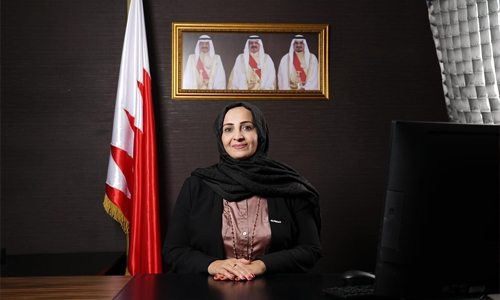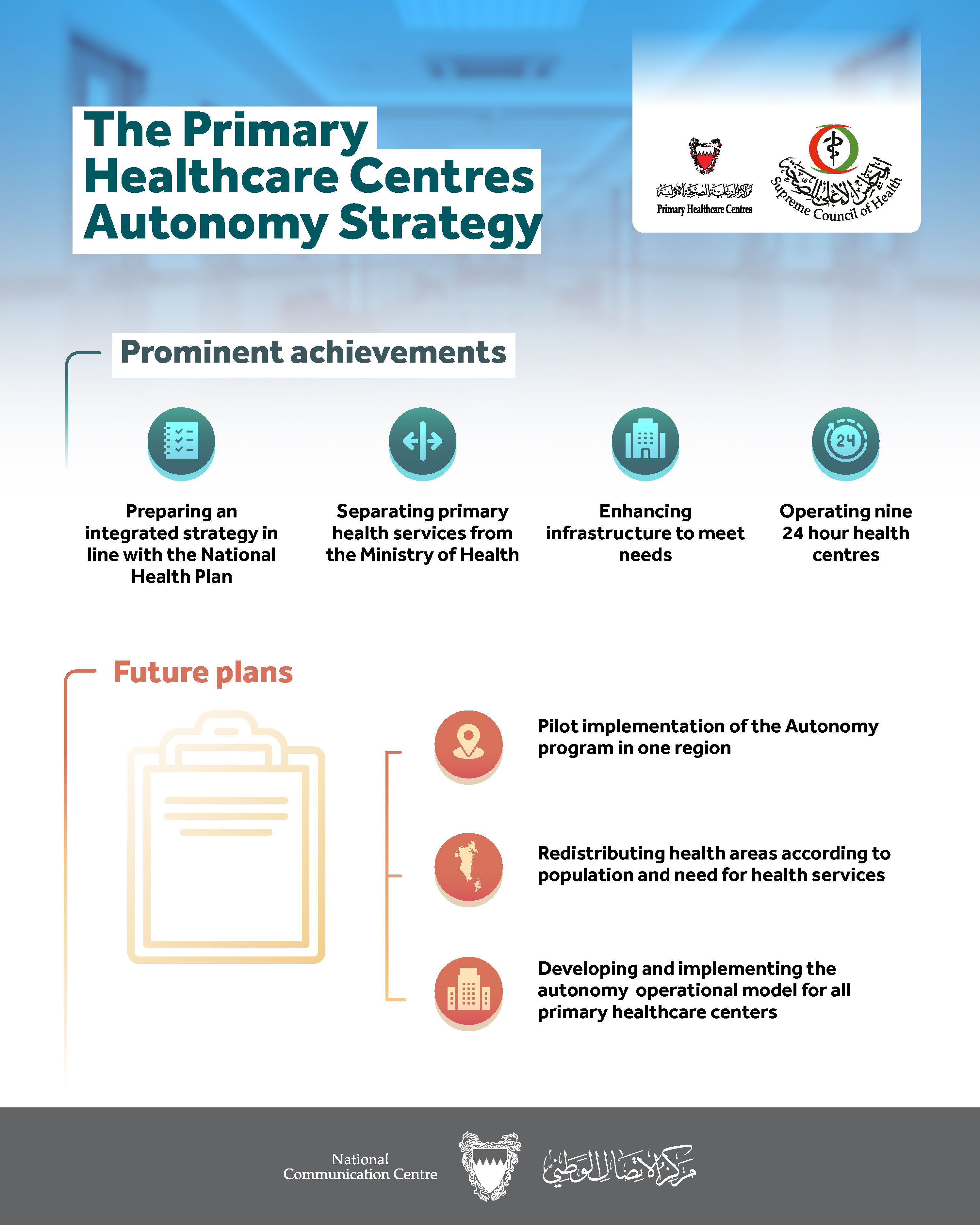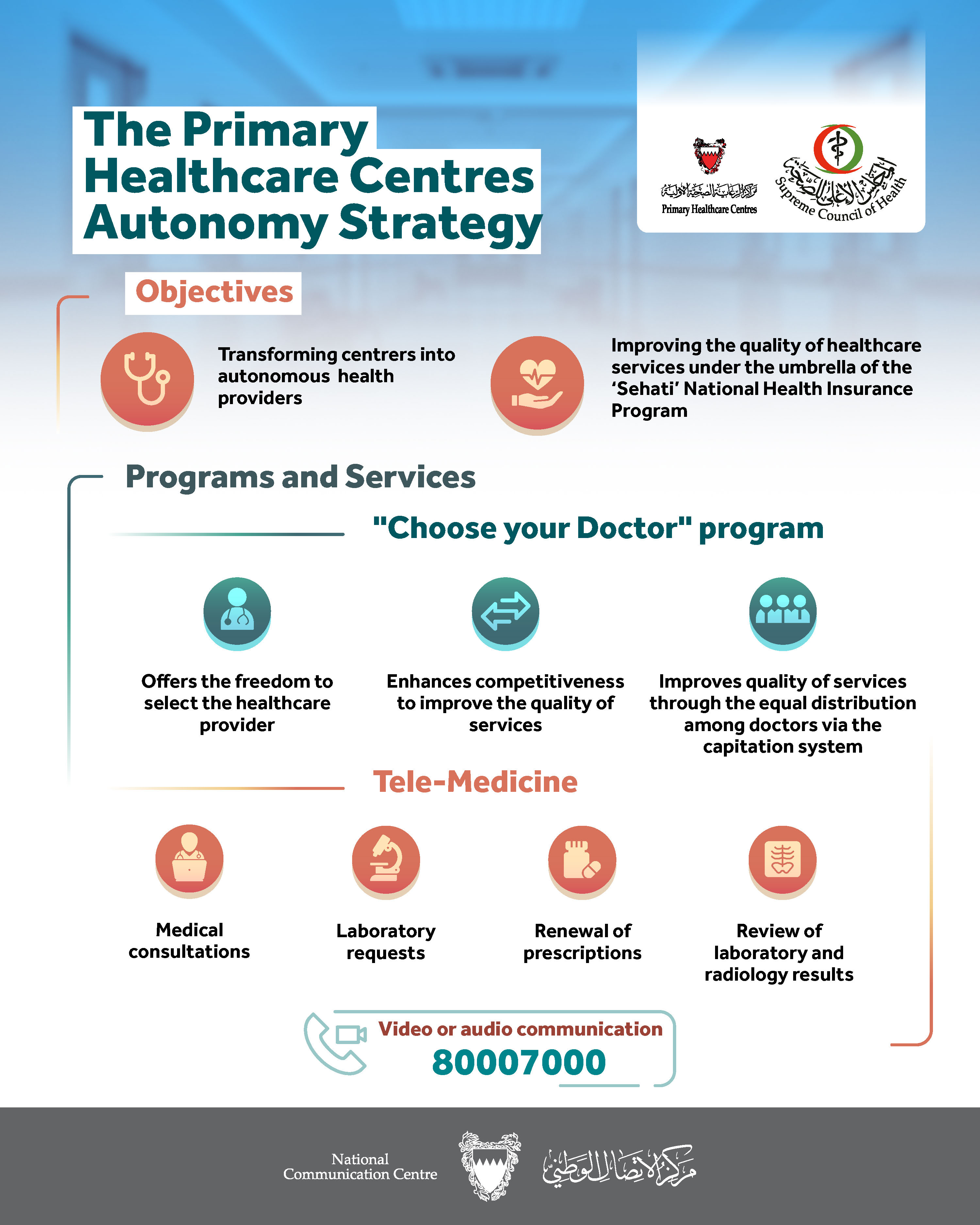Autonomy strategy aimed at providing integrated and sustainable health services with professional institutional work: Dr Jalila
TDT | Manama
The Daily Tribune – www.newsofbahrain.com
The primary healthcare system is the cornerstone of health services in the Kingdom of Bahrain and the first point of contact for health care. This was emphasised by Primary Health Care Centres Chief Executive Officer Dr Jalila Sayed Jawad who said the system includes a range of services aimed at ensuring healthy individual health, in parallel with the promotion of health behaviours, and early detection of diseases and diagnosis.
During the government’s briefing organised by the National Communication Centre in cooperation with the Executive Directorate of Primary Care Centres, Dr Jalila added that the draft strategy for autonomy in primary healthcare centres aims to promote the principles associated with the development of a self-managed primary health system by the Board of Trustees and the Primary Health Department, as well as the provision of integrated and sustainable health services, working in fairness, efficiency and high quality.
On the project’s objectives, the CEO stressed that the strategy was aimed at supporting the health system based on primary care, increasing freedom of choice, taking advantage of the benefits of “family medicine” and its holistic approach, as well as introducing a solid base of ultimate independence of primary health care, transforming the balance towards promoting health, prevention, improving performance and quality, by transforming centres into self-health providers and establishing healthcare networks under the umbrella of the National Health Insurance Programme.
Dr Jalila said that the current status of health centres has been examined and an integrated autonomy strategy has been developed in line with the National Health Plan approved by the Council of Ministers. The strategy addresses a self-management plan aimed at improving prevention, protection and health promotion activities, improving the allocation of financial and human resources, and empowering health service providers to improve the quality of services provided.
The primary healthcare centres provided services through a qualified staff working under the umbrella of primary healthcare centres. The total number of such staff was 231 2, including 465 doctors, 566 nurses, 813 support service personnel and 292 administration, while 95 personnel provided support services.
Dr Al Sayed reported that the Choose Your Doctor’s Testing programme had been introduced in some centres, with a number of objectives, the most important of which were to increase the rate of early detection of chronic diseases while maintaining the quality of services provided and increasing client satisfaction in line with the health insurance and self-management of health centres.
In this regard, she explained that the programme aims to strengthen the primary health (prevalence and curative) services provided through the application of the patient’s family physician and family continuity curriculum while affirming the free choice of the patient’s service provider.
On the main findings of the programme, Dr Jalila indicated that a year after the programme, an increase in the discovery and diagnosis of chronic diseases was observed, as follows: hypertension 17%, diabetes 10%, breast cancer 3%, prostate cancer 15%, fat 5%, kidney diseases 5%, ophthalmic diseases are 13%.
She added that the clinical indicator file and early detection of diseases in primary healthcare centres had evolved significantly, with female early cholesterol detection ratio to 58%, early detection of prostate cancer in 16% of men, and early detection of diabetes to 28%.
Related Posts



